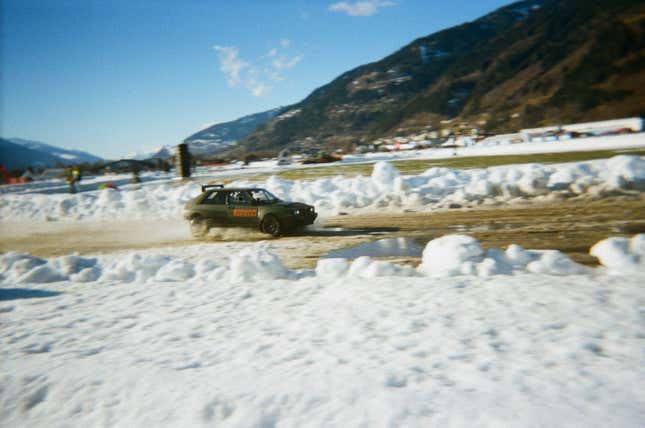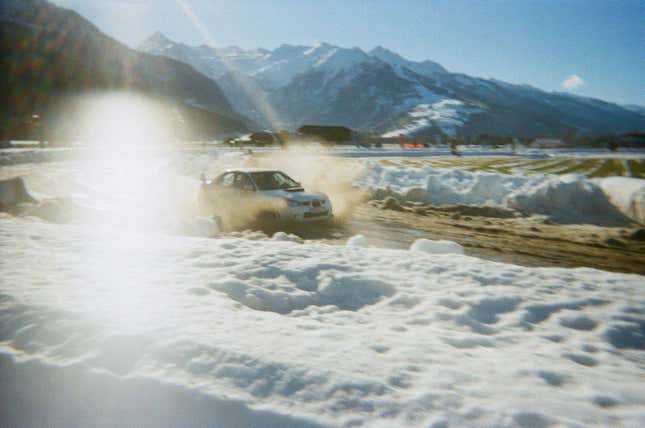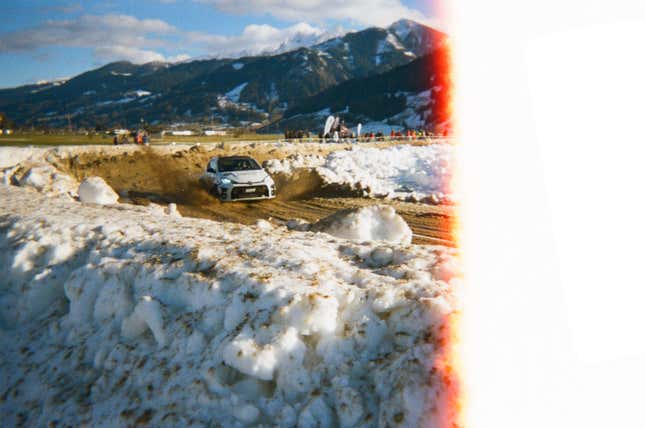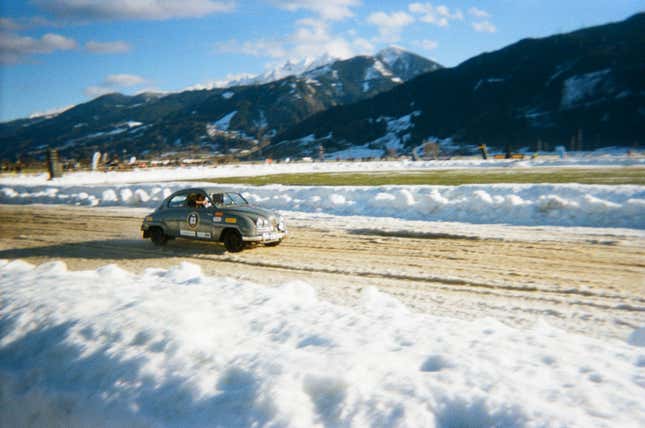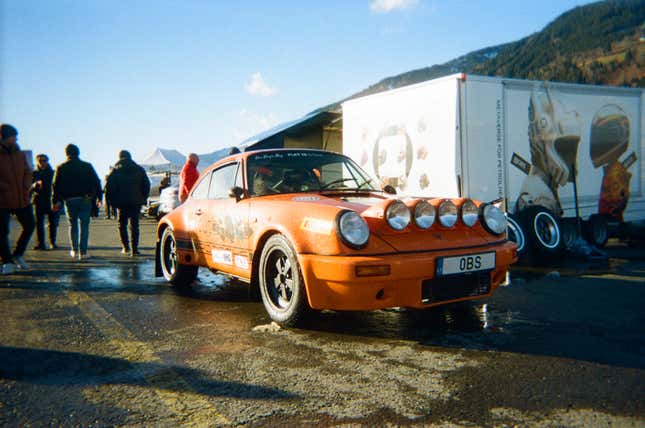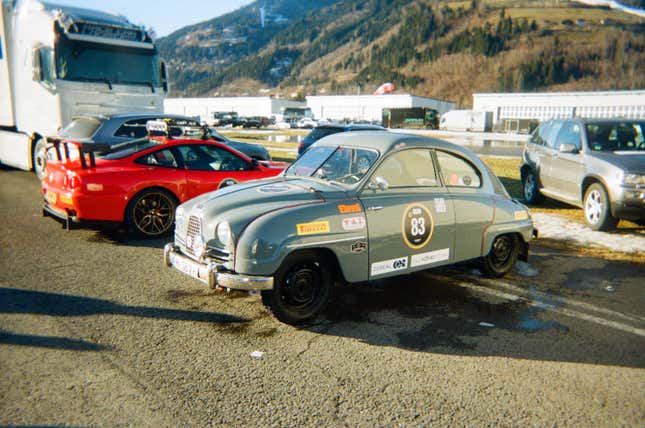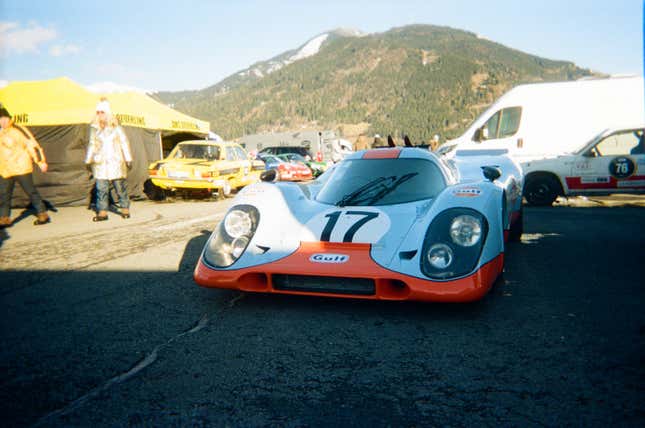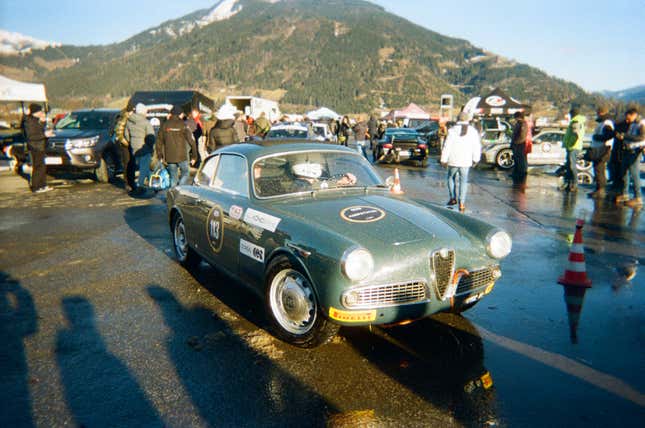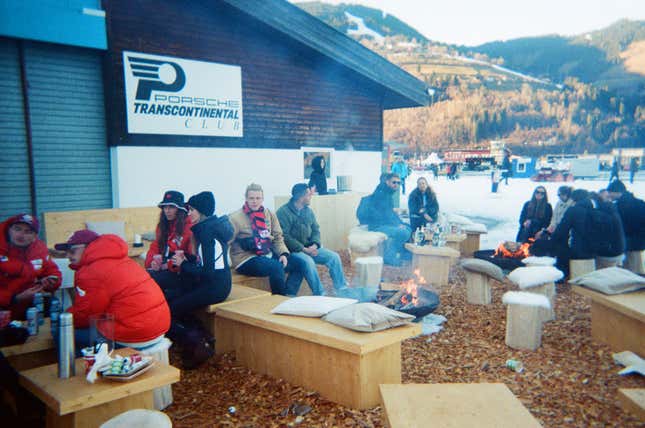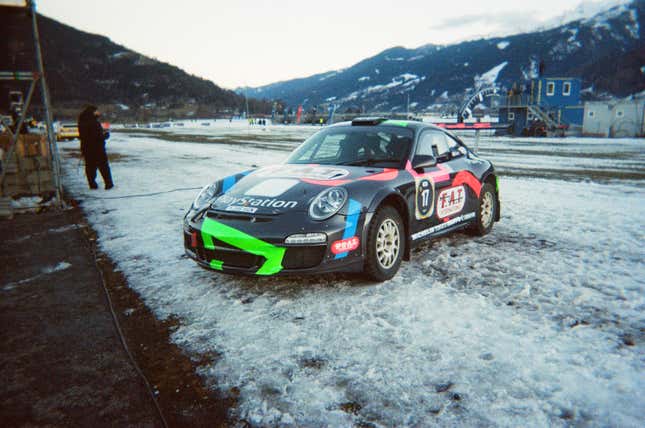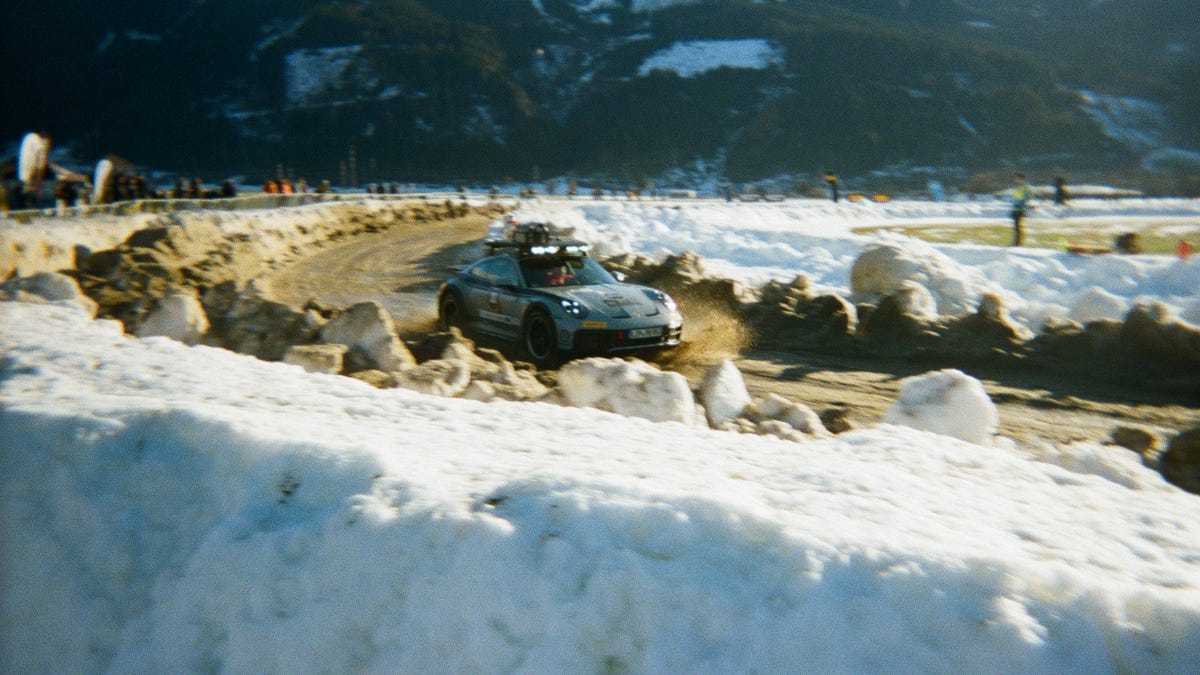You’ve heard the narrative time and time again: Car culture is doomed and young enthusiasts have been robbed of the opportunity to engage in any sort of meaningful way. Mass electrification, unfavorable legislation, inflation, and price surges brought upon by the auction sites are going to kill automotive enthusiast culture as we know it.
But after a weekend at the F.A.T. Ice Race in Zell am See, Austria, I’ve never been more certain that the future is looking just fine. The Ice Race and its parent organization, F.A.T. International, are the brainchild of Ferdi Porsche, the son of Porsche chairman Dr. Wolfgang Porsche and the nephew of F.A. Porsche, who designed the Porsche 911. Ferdi Porsche, at 30 years old, is a trained architect, a serious fan of streetwear and a modern art collector. He lives between Vienna and Zell Am See, the ancestral home of Porsche.
F.A.T. was once a French logistics company that sponsored LeMans-winning Porsche 962s in the ‘90s. Ferdi Porsche has resurrected the name to create F.A.T. international, a company with a vision to bring automotive culture to a wider audience. As he likes to say, “The cars are the centerpiece but what brings the party is the people.”
In the late 1930s, Porsches would race on the frozen Lake Zell with skiers in tow. This tradition lasted until 1974 before it was revived by Ferdi in 2019. What started as a small-town tradition in Zell Am See is now expanding, with another edition of the Ice Race taking place in Aspen, Colorado from February 8-10th.
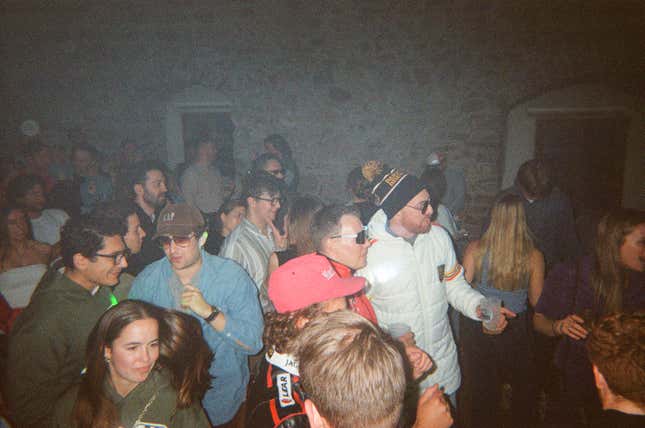
It’s 1AM at Kaprun Castle, a 13th century fortification perched above the town of Zell Am See, once home to Salzburg’s landed gentry, such as the Ramseiders from Saalfelden, the Diethers of Schedling and Urstein or the Hundts of Ainetperg. Tonight, 90s hip hop is echoing throughout the 800 year old stone walls. Looped footage of gnarly Group B rally scenes are projected above a DJ booth, and throngs of 20-somethings clad in neon hues of ‘80s and ‘90s motorsport garb are throbbing to the bassline, fueled by Red Bull and Jagermeister. The theme is ‘80s and ‘90s, even if many of the partygoers weren’t old enough to drive during the ‘80s and ‘90s. Falling in line, I snapped pics of the day’s events on a Kodak disposable film camera.
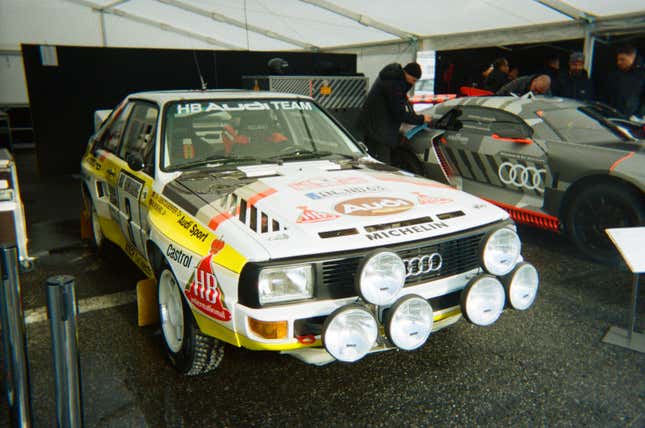
The party was the capstone event of the F.A.T. Ice Race; the race was canceled last year due to warm weather, and the year before that it wasn’t open to the public due to COVID-19. And the year before that, it was forbidden because of the pandemic. While the event did go on as planned this year, it wasn’t without its troubles: rain had made the timing system malfunction, so cars ran without recording lap times. The 3,000 people in attendance didn’t seem to care.
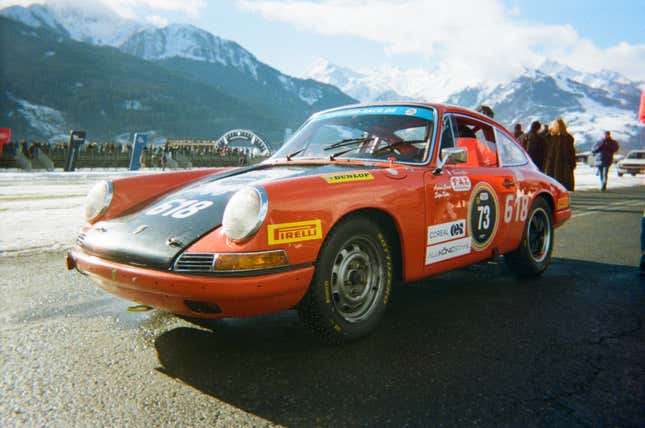
It certainly didn’t slow down the racing, because the F.A.T. Ice Race, the tentpole event of F.A.T. International, really isn’t strictly about the cars. “Our idea is to be there for the next generation of car enthusiasts, and do that over every vertical we have,” Porsche says. And those verticals include limited edition streetwear collabs, art, hospitality, limited edition watches from Porsche Design, and parties. Lots of parties. And there’s Mankei, a coffee shop at the end of the famed Grossglockner High Alpine Road that Ferdi Porsche designed, too. Streetwear designer Sean Wotherspoon created a capsule collection of F.A.T.-themed designs using deadstock pieces he sourced from around the world and customized them with neo-vintage motorsports in mind. Those pieces were on sale at the Ice Race, and sold out within 35 minutes. To Porsche, the cars are just simply part of the equation; “we’re more pop culture than just cars.” And that’s why the Ice Race feels just about as diametrically opposed to a staid PCA (Porsche Club of America) event as it can get. In the middle of the day, the announcer had to get on the PA system and remind attendees that it was strictly verboten to do donuts in the slushy parking lot.
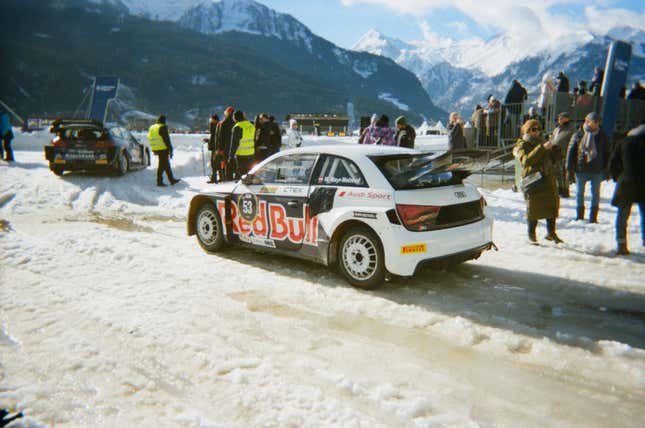
“My idea was to create a race where you could literally drive a Trabant,” Porsche says. And sure enough, an East German-made Trabant has actually been a part of the Ice Race. And that’s what makes the event shine, the spread of cars. “It doesn’t matter if you bring a ten thousand dollar car or a five million dollar car, and that’s what the people want–even the ones with the five million dollar car. They want to be a part of the community and hang with everyone,” Porsche proudly proclaims. Variety is the spice of life, and it’s on full display at the Ice Race. While there’s certainly a subtle theme going on, and that’s Porsche (the automaker, not the man), it’s balanced with a healthy serving of olive oil-powered vintage Ferraris and Alfas, swift Swedes in the form of two-stroke Saabs, and rally kings like the WRX STi and the Audi S1 Quattro. Valtteri Bottas even took out a Porsche 911 Dakar for a few laps and Bruno Spengler, DTM champ, ripped laps in a Dakar-winning MINI. Unfortunately none of the dozen or so 550 Spyders, many on loan from the Porsche Museum, made it out on the slush-laden track. There’s always next time.
Across the Pond
On February 8-10th, for the first time, the F.A.T. Ice Race will take place outside of Austria. The second installment will be held in Aspen, Colorado. The event promises to capture the same sort of youthful, democratic vibe as the Austrian version, but of course, nothing goes off without a hitch.
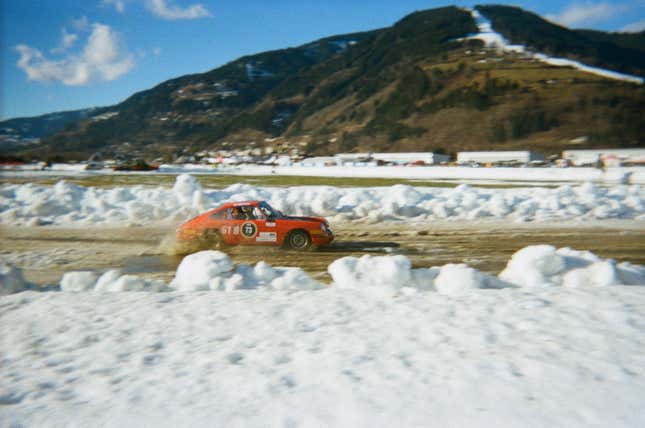
Problems with permits made the financials of the race problematic, and Ferdi was left with a choice: continue with the festival that he and his team dreamed up while increasing the ticket prices to make the whole thing feasible, or call it all off. With so much work already into the project, he pushed forward. He addressed the controversy on instagram and explained what had happened to his followers. By the time the news hit, most of the hard work was already done. Porsche legend Jeff Zwart was tapped to get some interesting vehicles at the event, and folks had already made travel arrangements.
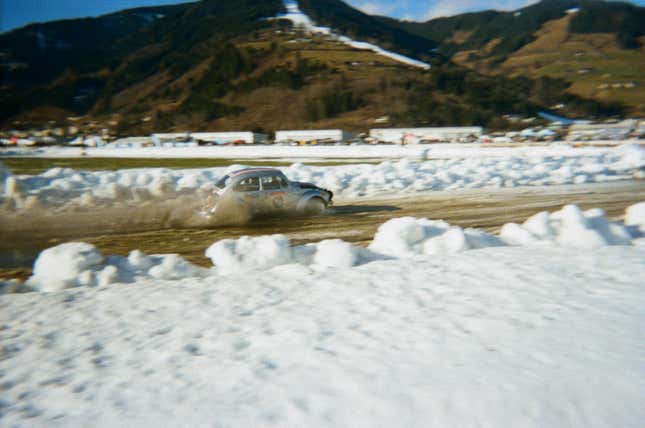
The tickets for the first iteration of the Aspen event naturally landed at a much higher price point than the Austrian version, but that was never part of the initial vision. “We had different ticket tiers all the way down to a non-ticked parade through town,” Porsche says. Tickets remain for this year’s event and they carry a $1911 price tag.
“I know from architecture, it’s always the most difficult to start with a blank piece of paper,” he adds, hinting at the fact that nothing goes smoothly the first time. But that’s the thing about the Ice Race–against all odds, it always goes on. Even through the various setbacks it had to overcome in Europe, the event was a success, and the crowd it drew was young, creative, and devoid of the peacocking typical of car events. Porsche’s recipe of folding in various “pop culture” verticals into his events feels novel, not to mention that it draws in some seriously cool cars. And perhaps more importantly, new enthusiasts.
